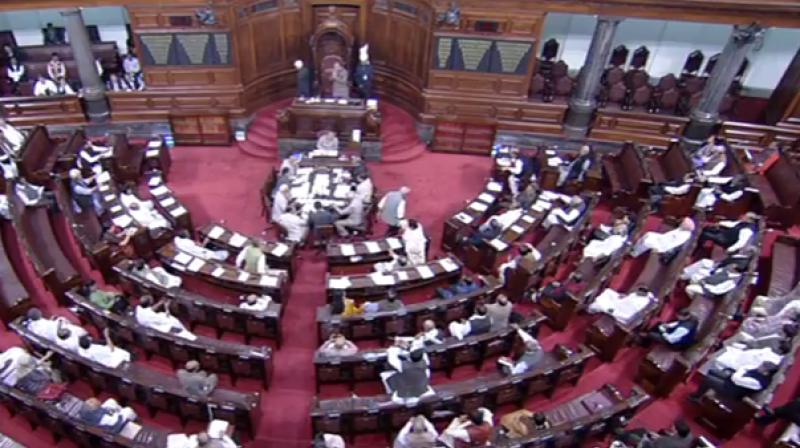Parliamentary lesson for ruling alliance

The poor floor management of the ruling party and alliance in the Rajya Sabha led to acute embarrassment for the government as the Opposition seized the opportunity on Monday to ram in amendments to a bill to grant constitutional status to the National Commission for Backward Classes. The BJP president was pushed into coming down hard on the truant MPs in the Upper House, which generally gets lesser attendance on any given day compared to the Lok Sabha. Even so, it is the duty of the ruling party and the government to properly manage its business, including in the national legislature where the work of the whip becomes so important. The failure in this instance is total because a whip was indeed issued. The ruling alliance does not have a majority in the Upper House, more the reason why it has to be on its toes to avoid being surprised, which was not quite the case here as the discussions had gone on for six hours.
The voting in of the Opposition-sponsored amendments by 74 to 52 members (BJP’s strength is 56 and the alliance should enjoy the support of 88 members, including the JD(U)) is not the end of the world, or of the government. The Bill has to go back to the lower house where the result would obviously be very different. Why the ruling dispensation may feel the embarrassment more is the fact that, of late, it has been seen to be a champion of the backward classes and was berating the Opposition for stalling the reform in the Upper House after the Bill had been passed in the Lok Sabha last April. The matter of the Congress wishing to add a woman member from a backward community and a member from the minority community smacks of political manoeuvring than true reform. The legislative issue was about granting constitutional status to the existing commission.
This is known to be an objective that the Prime Minister himself desires. The politics of classifications is not going to go away. But what could have been avoided in this particular issue is the polemics of debate as it is everyone’s wish that the NCBC be empowered. The work of the commission will define its importance rather than the status the commission enjoys, more so as the number of backward castes in the Central list of OBCs has increased to 5,013 and beyond and then there is the question of tackling the “creamy layer”. It is the job of the NCBC to decide on over-inclusion and under-inclusion, etc. Parliament should not lose sight of the main objectives while dealing with commissions like the NCBC.

